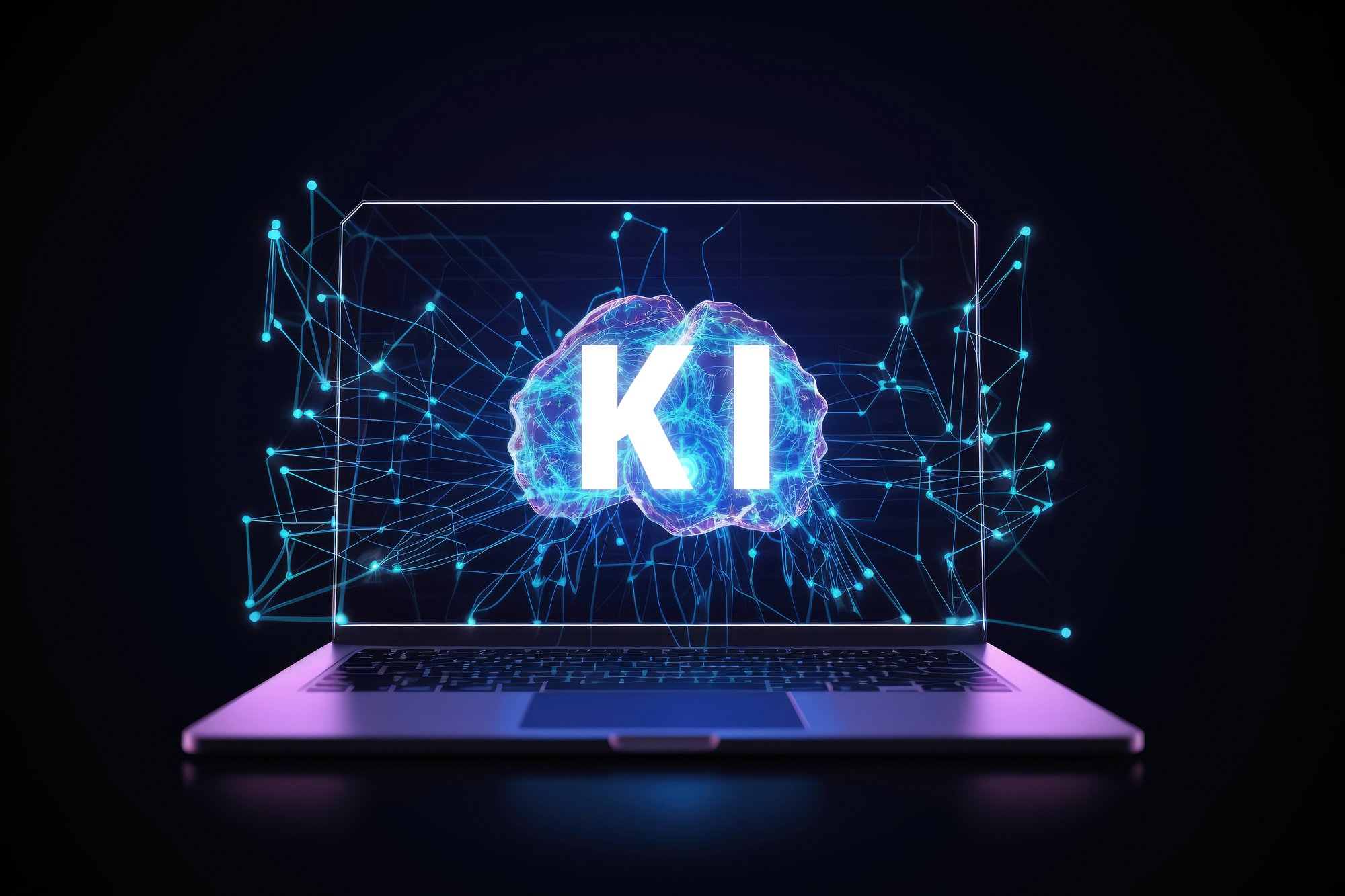-Photoroom.png?width=100&name=Image%20(11)-Photoroom.png)
Author
Laura Virginia
CRM Developer & Administrator
DE
EN
DE
EN
-Photoroom.png?width=100&name=Image%20(11)-Photoroom.png)
Author
CRM Developer & Administrator
The integration of Artificial Intelligence (AI) into Customer Relationship Management (CRM) systems represents a significant shift in managing customer relationships. It changes the way businesses interact with their customers. Companies that proactively integrate AI into their CRM strategies are poised for future success and well-equipped for data-driven competition.
AI automates everyday tasks such as email generation, enhances data analysis, and enables predictive analytics to forecast customer behavior and lead conversion. Due to technological advancements, personalized service, increased automation possibilities, and deep, real-time insights from data are achievable.
To fully harness the potential of AI-driven CRM systems, companies need a deep understanding of the technology and their own needs. In this article, we delve into the benefits and strategic implications of implementing AI in your CRM management. This ensures that your company remains competitive in customer relationship management.

Our economy and businesses operate in a digital environment that is relentlessly moving towards data-driven decision-making. Traditional CRM systems and their users often struggle to efficiently analyze large volumes of data, especially when data quality is not optimal. By integrating AI, these CRM tools can process and interpret complex datasets and automate data input and cleaning, making data integrity and management significantly more efficient.
AI-powered CRMs ensure data accuracy, increase reliability, and improve decision-making and strategic planning. Sales representatives, like in many other areas, can save a significant portion of their time on CRM tasks with AI, boosting operational efficiency and aiding in gaining reliable insights.
The role of AI in data analysis is becoming increasingly significant. With advanced AI algorithms, companies can delve deeper into customer data, leading to a better understanding of customer needs and behaviors. Consequently, companies can tailor their services and products more accurately to the customer, resulting in higher customer satisfaction and loyalty.

CRM providers such as Salesforce, HubSpot, and Zoho have begun integrating AI and are rapidly advancing these technologies to continuously improve their offerings.
Here are examples of some of the most well-known CRM platforms that have already effectively integrated AI technologies:
HubSpot CRM
Salesforce
Zoho CRM Plus
Freshsales
These providers use AI to gain insights, predict customer behavior, and enhance interactions. Tools such as Einstein GPT from Salesforce and ChatSpot from HubSpot are transforming how sales and marketing teams manage and nurture relationships.
Einstein GPT from Salesforce is an application based on GPT (Generative Pre-trained Transformer) technology developed by OpenAI. This technology enables the generation of text that sounds human and is tailored to the specific needs and requirements of customers. This means sales and marketing teams can use Einstein GPT to create personalized emails, chat messages, or social media posts that are automatically generated by AI. This personalized communication helps strengthen customer relationships and increase engagement.
ChatSpot from HubSpot is another AI-powered platform focused on improving customer communication. With ChatSpot, companies can create chatbots that interact with customers in a natural way. These chatbots use advanced AI to understand customer intent and respond accordingly. They can answer questions, solve problems, and even provide personalized product recommendations. This allows sales and marketing teams to work more efficiently while also offering a better customer experience.
The integration of this still-new technology into your system landscape is changing the way companies interact with customers. It offers strategic advantages regardless of your industry.
The integration of Artificial Intelligence (AI), as in many other areas, has revolutionized Customer Relationship Management (CRM) systems.
In automation, it has proven to be especially valuable. AI can independently handle tasks related to email sending and creation, account information, and predictive analysis for lead conversion. This automation, including data entry, frees sales and marketing teams from time-consuming, repetitive tasks. This allows them to focus on strategic initiatives. This shift in resources improves company efficiency and enhances the personalization of customer communication.
The integration of Artificial Intelligence (AI) into Customer Relationship Management (CRM) systems aims to improve customer service and customer retention. The reliable takeover of routine tasks by AI enables companies to operate more effectively. This increases productivity and empowers human employees to focus on complex tasks. Routine tasks include:
- Email and cleanup of customer data- Streamlining of customer service
- Management of leads and task prioritization
- Automation of responses based on customer history
Predictive analytics is one of the most exciting developments in this field. AI analyzes previous behavior using existing data to predict future actions. This allows companies to anticipate customer needs, identify sales opportunities, and estimate churn. This capability maximizes customer satisfaction, enables precise deployment of marketing and sales activities, and boosts revenue growth.
Personalized targeting optimizes marketing strategies. Analytical capabilities enable effective customer segmentation and personalized marketing actions. Such personalized approaches improve customer experience, retention rate, and loyalty.
AI-powered CRM systems improve sales processes by predicting sales trends and identifying high-quality leads through predictive lead scoring. This makes sales efforts more targeted and improves the chances of conversions.
Through predictive and prescriptive analytics, the software helps companies anticipate and meet customer needs. Predictive analytics forecast customer trends and suggest the best responses in conversations. With this proactive approach and tools like AI for conversations and AI for intelligent leads, companies stay ahead when it comes to meeting customer expectations and CRM use cases.
Sentiment analysis (also known as emotion analysis, opinion mining, or sentiment detection) is another advanced use of AI in customer relationship management. It relies on the use of NLP (Natural Language Processing) and machine learning algorithms to capture and interpret subjective information from customer interactions, such as their emotions, opinions, and attitudes toward a brand or product.
Through sentiment analysis, companies gain valuable insights into how customers perceive their brand. It also enables the identification of potential problems and areas for improvement. Based on this, marketing campaigns can be tailored to address customers' concerns and preferences.
An example is when a customer posts a negative review about a product on social media. Sentiment analysis can quickly detect this issue. The company can use these insights to improve the product or service in question and prevent similar issues in the future.
The integration of Artificial Intelligence (AI) into CRM systems offers numerous benefits for companies. With AI Salesforce, sales representatives receive intelligent suggestions and insights for lead management and sales conversations. By using AI-driven software, similar products can be grouped and pricing optimized, taking discounts, incentives, and payment terms into account.
A Google survey of marketers revealed that the use of AI in marketing leads to a time saving of more than 10%. Companies that use AI-powered personalization report higher conversion rates and increased customer satisfaction.
The continuous development of AI technology promises further benefits through its integration into CRM systems. Companies that rely on AI-driven CRM systems position themselves to stay at the forefront of their industry and remain competitive.
The global model architecture of Marketing Cloud enables Einstein to aggregate data from various Salesforce customers to identify trends and optimize the send time model. The more accurate predictions can lead to increased engagement rates in campaigns.
Einstein monitors open, click, and unsubscribe rates for both batch and journey email sends. For journeys, Einstein analyzes all email activity within a journey rather than evaluating each email based on its individual historical performance.
Notes or insights are generated when something stands out significantly (compared to historical data). To calculate an average expected performance, Einstein uses up to 90 days of performance data.
Einstein Engagement Scoring is a data-driven feature that helps boost engagement and conversions. This scoring model uses customer data and machine learning to predict the likelihood that subscribers will open an email, click a link, continue subscribing, or convert once they visit your website.
These enhancements highlight the vital role of AI in evolving CRM into more customer-centric operations.
With the introduction of groundbreaking technologies such as generative AI, natural language processing (NLP), and machine learning (ML), the CRM landscape is undergoing a significant transformation, offering companies new opportunities to refine their strategies and improve operational efficiency.
Natural language processing, including natural language search, enables refined customer segmentation in CRM software. This supports the development of tailored marketing strategies and enhanced customer interactions.
Generative AI for content creation gives companies the ability to craft personalized emails, chat responses, and marketing content, thereby improving customer experience and streamlining content production.
HubSpot’s AI assistant not only offers suggestions for blog posts and social media content but also supports the creation of marketing emails. With the assistant, initial drafts can be generated and then manually adjusted as needed. By using the AI-powered campaign assistant, you can create high-quality emails within minutes. Provide your topic, outline your arguments, and choose the desired tone – the assistant will then generate the text for your next campaign.
Machine learning for predictive sales insights and sales forecasting leverages data analysis and prediction models to anticipate sales trends and customer behavior. Optimizing marketing efforts and addressing customer needs leads to more targeted engagement and improved sales performance.
These advancements in AI technology signal a new chapter in CRM systems, and as AI continues to evolve, its integration into CRM will deepen further. This paves the way for a future in which AI-driven insights form the backbone of customer relationship strategies.
The cost of adding AI features to CRM systems depends on the specific needs of the business and the provider. In some cases, they are included in the overall price of the software, but they may also incur additional fees.
For example, implementing a timeline summary and Zoom transcription can range between $10 per user/month and $17 per month or more for advanced features.
This overview highlights the financial aspect of integrating AI into CRM systems. It illustrates both the affordability and the value of such technologies for businesses.
Prices vary depending on specific integrations, customizations, or solutions and must be reviewed with the individual provider.
It is essential that AI results are accurate and fair. Data bias can lead to distorted customer insights and decisions. Protecting customer privacy is also a major concern. Companies should take measures to address these issues, including:
These measures help reduce bias and clear as well as strict privacy policies protect customer data.
An overreliance on automated interaction can deter some customers. Companies should find a balance between AI automation and human interaction. Using AI to support and enhance human engagement is essential. Providing real-time insights and recommendations through virtual assistants during customer interactions ensures personalized service. However, not all interactions should be handled solely by AI.
AI investments, especially in AI cloud platforms, can be expensive, and the return is not always immediately visible. Identifying high-impact use cases maximizes the value of AI while keeping costs under control. The larger the company, the amount of data, and the number of leads and contacts, the more attractive the implementation of AI features becomes. However, small businesses can also benefit from the AI boom if they keep a close eye on costs.

Salesforce AI is called “Einstein” and offers exciting features for Marketing Cloud and email marketing automation.
Marketing Cloud’s global model enables Einstein to use data from multiple Salesforce customers to better identify trends and improve the send time model. When activated in the enterprise account, you can receive better predictions by integrating data from the global data pool of the Marketing Cloud. This makes the predictions more accurate and can lead to higher engagement rates in campaigns.
Einstein monitors open rates, click rates, and unsubscribe rates for both batch and journey email sends. For journeys, Einstein analyzes all email activity within a journey instead of evaluating each individual email based on past performance. When something appears unusually high or low compared to your historical data, a note or insight is generated. Einstein uses up to 90 days of performance data to calculate an average of expected performance. This average is used as the expected value for the measured variable. Einstein evaluates each journey and each batch email send once daily.
Einstein Engagement Scoring is a data-driven feature that helps you increase engagement and conversions. This scoring model uses customer data and machine learning to assign subscribers a score that predicts the likelihood they will open an email, click a link, remain subscribed, or convert once they visit your website.
HubSpot’s AI features are not yet as extensive as those of Salesforce, but the generative AI tools can be a great help in content creation.
In addition to ideas for blog posts and social media content, the AI assistant can help generate marketing emails. It allows you to create drafts that can then be manually refined according to your preferences.
With the help of the AI-supported campaign assistant, you can create high-quality emails in just a few minutes. You provide the topic, describe your key points, choose the appropriate tone of voice, and the assistant generates email content for your next campaign.
Who wouldn’t want to automate their tasks, especially when they’re repetitive and time-consuming? Salesforce and HubSpot offer effective methods that enable automatic sending at the right time with the ideal content, ensuring that messages come across as specific rather than generic.
This makes your email marketing more effective; emails are opened more often, read, and the included links are clicked. Additionally, with much less effort, a significantly higher number of relevant messages can be sent to leads and customers. Furthermore, Salesforce and HubSpot continuously release new AI-based features that make email marketing even more powerful.
Would you like to take your marketing automation to the next level? Then simply contact us for a free initial consultation.
In summary, AI-powered CRM systems offer companies significant advantages.
For businesses that want to stay ahead, integrating AI into CRM systems is essential. This shift not only allows them to handle large volumes of data but also delivers actionable insights and enables the automation of routine tasks. Implementations lead to significant improvements.
Companies aiming to gain a competitive edge must prepare for ongoing AI integrations. The technology landscape for customer relationship management (CRM) is evolving rapidly, driven by artificial intelligence (AI).
The growing volume of data is key to delivering personalized customer experiences, enabling predictive sales insights, and developing automated marketing strategies. Data quality is crucial, as the performance of AI depends heavily on the quality of its inputs.
Invest in AI-enabled CRM solutions: To fully leverage the potential of AI, choose CRM platforms that are either built with AI capabilities or can be integrated with advanced AI tools, such as the Dynamics 365 Copilot features.
Focus on data quality: Since AI results are only as good as the input data, data integrity is critical to improving the effectiveness of AI in CRM applications.
Train your team: Train your employees to competently use AI-powered CRM tools, with a focus on interpreting AI-driven insights and applying them to strengthen customer relationships.
Explore AI applications: Go beyond traditional CRM functions and explore the potential of AI for personalized marketing, AI chatbots in customer service, and predictive sales analytics to understand the impact of CRM on business success.
Emphasize ethical AI use: Commit to responsible use of AI, with transparency and data privacy at the core. This not only builds customer trust but also ensures compliance with existing regulations.
The path to implementing AI in CRM is not always easy and comes with challenges. These include the complexity of integration and the need for cultural change within the organization. However, the benefits - such as increased efficiency, deeper customer insights through business intelligence in CRM, and proactive identification of customer needs - are well worth the effort.
-Photoroom.png?width=280&name=Image%20(11)-Photoroom.png)
About the author
Have you heard about the Commerce Hub? In this article, we'll bring you up to speed and provide information about the new HubSpot tool for processing and centralizing payments.
Increase the Efficiency of Your IT Support with AI. In this article, you'll find practical ChatGPT prompts to enhance your CRM workflow.
HubSpot Breeze AI is a powerful AI solution that goes far beyond traditional text generators. This AI tool does much more than just write text: Breeze AI combines automated content creation,...